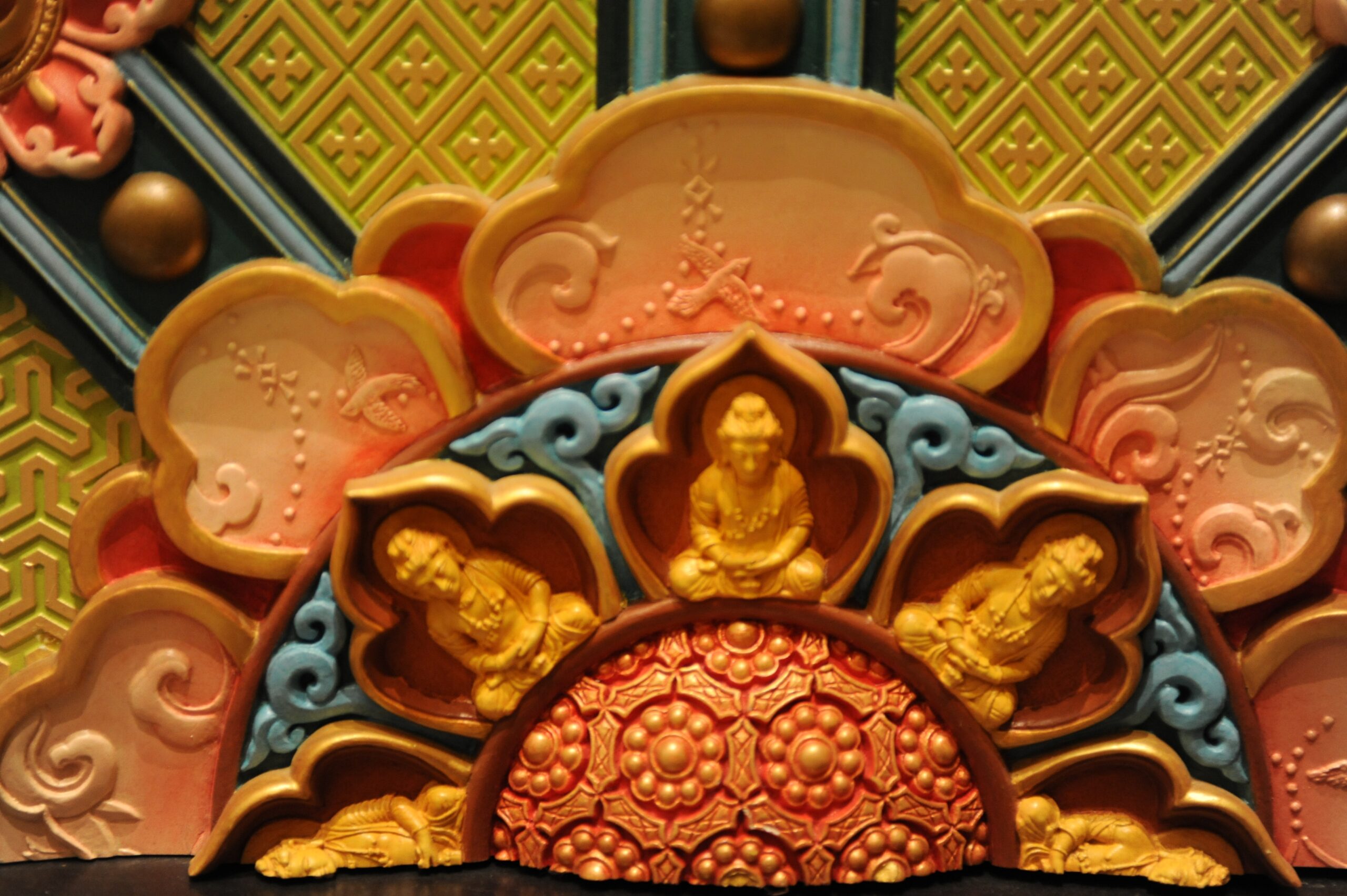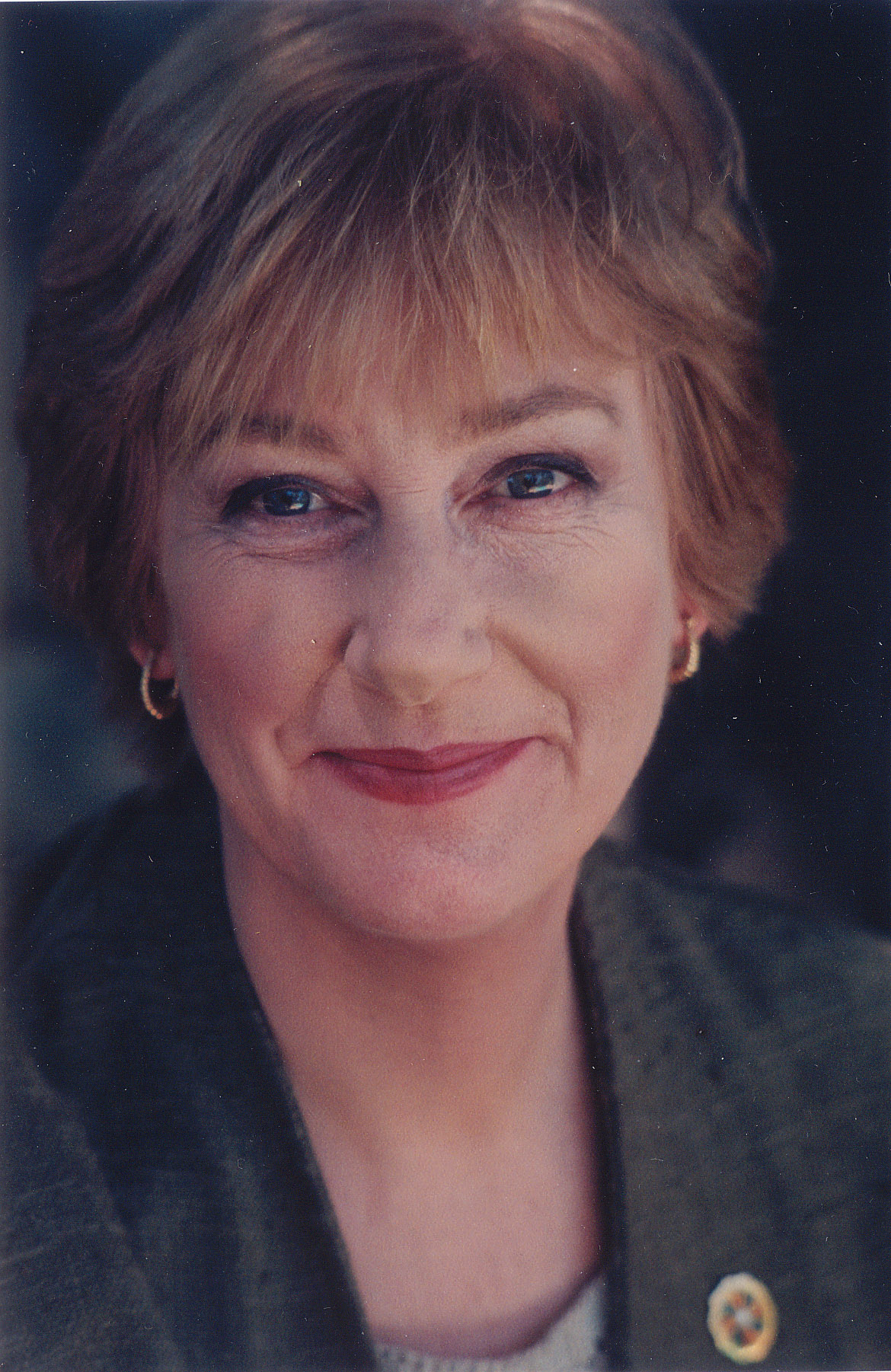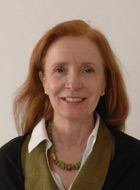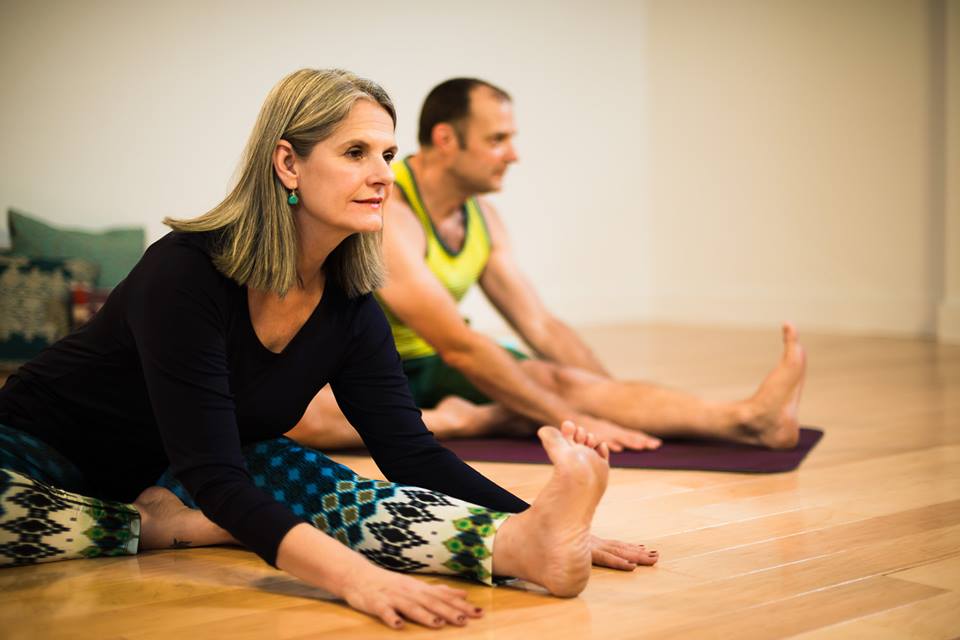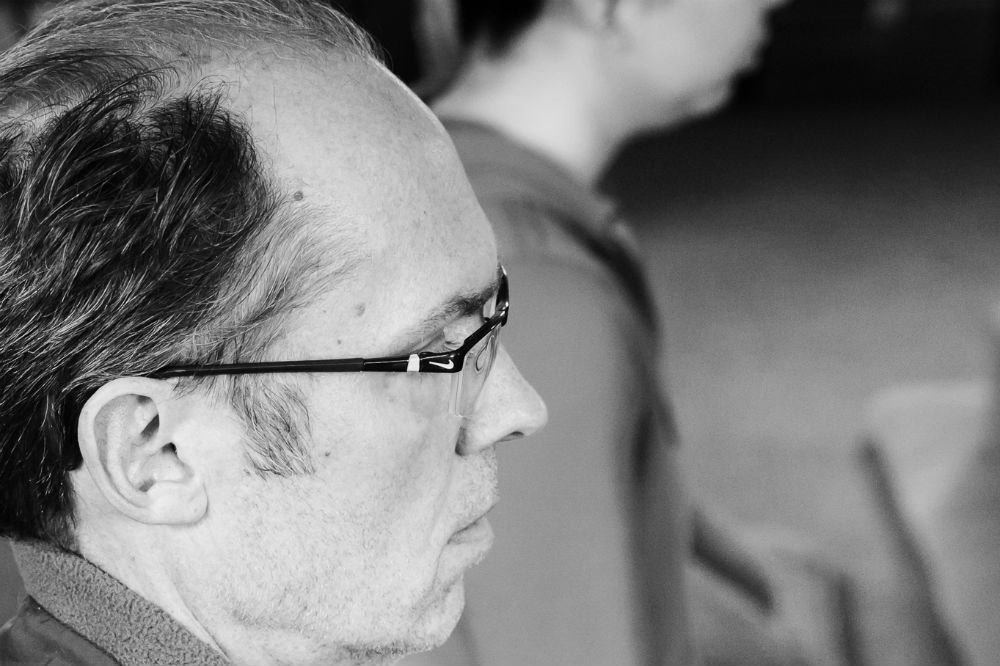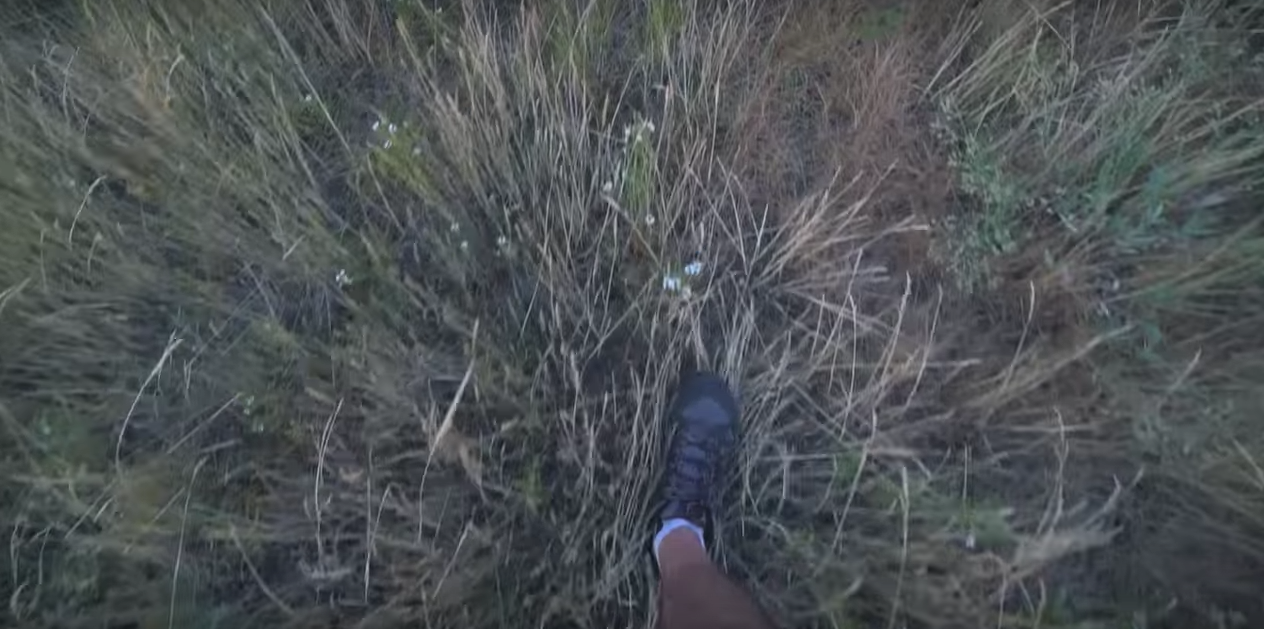Relax and Wake Up! Buddhist Teachers Reflect on the Wisdom of the Emotions
By James Schnebly with Jenny Bondurant & Kay Peterson ~~~
Our emotions can lock us in habitual struggle with ourselves and our relationships, yet they are also doorways to our intrinsic wisdom. Out of this understanding, helpful practices have emerged within the tradition of Buddhist tantra. These practices are based on the understanding that emotional energy falls into five archetypal patterns, or buddha families, which contain different perspectives and relationship styles that can manifest in either a confused or sane way.
Jenny Bondurant and Kay Peterson have been working with these teachings and practices for decades, and now lead retreats which provide others with the opportunity to explore the energy of their own emotions, and learn the skills needed to befriend and welcome all states of mind, just as they are.
Recently, I spoke with Jenny and Kay about how their personal relationships to the five buddha families and a bit about the upcoming retreat they’ll be leading at Shambhala Mountain Center. They had much to say about how engaging with these teachings and practices allow us to open to our habitual ways of being, to learn to glimpse how we perpetuate suffering, and also that at the heart of our most confused emotions is awakened energy — which has the wisdom and skill to transform our relationship with ourselves and others.
James Schnebly: Has knowledge of the Buddha families ever changed your life?
Jenny Bondurant: When first introduced to these teachings, they felt revolutionary to me. I was familiar with my emotional traits and took them very personally. Discovering that “my” emotional patterns were universal began to broaden my attitude. I started to relax. Likewise, I noticed that those with whom I had a close personal relationship had emotional patterns that expressed other Buddha families.
When it comes to archetypal energies, a lack of awareness can lead to energy freezing into habits that close you down. An awareness of these energies, though, can create an ability to open up in a particular way. Recognizing this can cut through a lifetime of judgment. When anxious, angry, or needy, my emotions were my enemies. At ease, my emotions could be my friends.
When anxious, angry, or needy, my emotions were my enemies. At ease, my emotions could be my friends.
Unconditional friendship with all states of mind is the foundation of this practice and the thread throughout our journey that brings joy and insight into our lives. Without judgment we can begin to see how unawareness leads to habits of great confusion and suffering. By allowing things to be as they are, without trying to fix, hide, or pretend, we can begin to see that at the heart of our most ancient habits is something free and open and filled with warmth and clarity.
My relationships began to change. When I looked at two of the main relationships in my life—those I had with my husband and my twin sister—I could see that these two people were so different from me, each in their ways of perceiving and relating that embodied other Buddha family qualities. No wonder we clashed at times! We see things so differently.
Kay Peterson: Jenny’s story feels personally very familiar to me! I would just add that as a psychotherapist, I’ve been traditionally trained to discern different personality types as a way to help people understand interpersonal conflict. When introduced to these teachings, though, I began to see how these assumptions can be so solid, as in, “this is what I do, or this is what he/she does.” These teachings illuminate differences, and yet show us how those differences are ever fluid and changing. We all possess the innate ability to express ourselves in lots of different ways, but we can sometimes just get caught in certain habits (usually because we’re scared). Through these practices we can learn how to tap into our inherent wealth of inner resources and play with different ways of being. Options for relating are then limitless. In light of know all of this, I think my sense of humor has drastically improved.Can you think of a particular instance when a knowledge of your Buddha family energy actually helped you grasp what was causing a source of conflict?
Through these practices we can learn how to tap into our inherent wealth of inner resources and play with different ways of being.
Can you think of a particular instance when a knowledge of your Buddha family energy actually helped you grasp what was causing a source of conflict?
JB: I remember a fight early in my thirty-year marriage to my husband, Brent. I can’t remember why we were fighting, but the energy was so familiar. We were angry and triggered, and each of us felt righteousness in our views. I wanted Brent to understand my side, and kept insistently trying to explain something to him. The more I talked, the more quiet he got. Suddenly he was out the door, and I heard the car start, then its rumble gradually faded into the distance as he drove away. I felt abandoned, disliked, and misunderstood. How could he leave in the middle of a fight? He returned later that day, and remained behind a closed door until the next morning, by which time I’d lost the desire to push communication and he’d lost his desire to retreat. Neither of us cared about the content of the fight. Later, when talking through what was going on for each of us, I acknowledged that I found healing through talk and connection. For Brent, all the talk became overwhelming when he was upset, and any clarity of mind was lost for him. He heals through space and solitude.
This work can require a real leap of faith into the unknown. That’s what working with the emotions is all about: vulnerability and a willingness to be vulnerable without giving up yourself.
We have experienced this dynamic many times since, and yet have gained appreciation and understanding of our differences and similarities. Brent understands the Buddha families from deep exploration, and we each “know” one another’s energy. It’s a part of us too! This allows us to drop unrealistic expectations. I’m not a sloppy version of him, and he is not an uptight version of me! As our expectations continue to collapse, respect grows. Things are more workable, enjoyable and downright funny.
Kay Peterson: I recently had an experience with an outcome that was not unlike the one that Jenny had with her husband. In my case, though, it involved a history of preconceived notions and intractability in a professional situation.
It started when I was working with a child in a school with a population that was 75 percent African-American and 25 percent Latino, and the kids in that school were living in a gang-ridden, poverty-stricken community. The school’s environment was chaotic: detention, no supervision, fighting. Everyone was just barely hanging on. The school couldn’t keep a principal. Lots of confusion and suffering all around.
When I first started visiting the school, I could sometimes feel my body and mind tighten up, my shoulders rising, my breath held in: I was always bracing for the next explosion. There was one particular student I was working with, and one day I ran into one of his teachers and asked if she had a moment to check in. When I asked how the student was doing, she said, abruptly: “fine.” I shared that the young man often talked about not being a good reader and that he was hard on himself. The teacher said she didn’t let him talk like that or feel sorry for himself. She said she usually just told him to get back to work. That’s when she added, “I know you mindfulness people don’t agree with that.” There it was: a pre-packaged collection of causes, conditions and projections that threatened to create a wall between us.
Instead of shutting down at her response, though, I suddenly felt space. It wasn’t like a nothingness (that is, it wasn’t an “I-give-up” feeling) or dissociation (numbing), but instead was a spaciousness ripe with possibility. Even with this bit of spaciousness, however, our real-time exchange held an awkwardness that hung in the air. In that moment I could feel her fear and my own, and there was a feeling of mutual uncertainty. But we were able to meet each other in that uncertainty, and in that room we experienced a flash of discriminating awareness that melted the space between us. We really met each other.
The main change I see that is possible for all of us is more ease, more love, more awareness, more trust in the essence of humanity that is beyond confusion.
I next said I was there to support both her and the student, and that I appreciated how hard she was working him and wanted to talk about it from time to time if she was able. Despite how she felt just a few short minutes before in her attitudes about what was going on here and about “mindfulness people,” now she agreed to continue to meet with me, and to think about meeting with the student in a new way.
This work can require a real leap of faith into the unknown. That’s what working with the emotions is all about: vulnerability and a willingness to be vulnerable without giving up yourself.
Is there something in the upcoming retreat at Shambhala Mountain Center that would help people survive (in terms of sanity) with the current political and emotional climate in America?
KP: I think these particular times make it easy for us to fall into an “us-versus-them” mentality. From that perspective, conflict and aggression are sure to follow. The teachings remind me how important it is for us to understand and express our innate wisdom of discriminating awareness. Although it’s important to be aware of our differences so that we can bring sensitivity and compassion to our meeting, at the same time we have to remember that we’re all just trying to be happy. We all get scared sometimes, and it shows in different ways. That said, we all have the ability to transform that fear into fearlessness and thus into skillful action. We have to help each other by reminding each other of our basic goodness.
By allowing things to be as they are, without trying to fix, hide, or pretend, we can begin to see that at the heart of our most ancient habits is something free and open and filled with warmth and clarity.
JB: This retreat will be held at the height of our political and cultural turmoil as we head into the elections. We will most likely be talking about how we can help bring sanity and kindness into a world often reeling with insanity and hatred. Awakening the wisdom of the emotions has enormous applicability and urgency because our negative reactions can catch like wildfire and spread like a contagion. We can interrupt this process for ourselves, and bring insight into the world in ways that can heal. For me, this is the essence of this practice. Seeing a transformation in others has given me enormous confidence that this ancient practice is completely up-to-date and modern in its applicability in the world at large. The main change I see that is possible for all of us is more ease, more love, more awareness, more trust in the essence of humanity that is beyond confusion.
Considering that this retreat has two teachers, do you have a sense that each of you brings a different Buddha family energy to your teaching?
JB: Kay and I are really different! And yet we have become deep friends over many years of teaching together. Because we are each very much ourselves, this provides balance, humor, and delight as we teach from the fully embodied spectrum of the five Buddha families.
KP: I’ve been so fortunate to have my friend Jenny committed to exploring this path and practice in relationship with me. We really do have very different styles, or “ways of relating,” and it’s easy for us to illustrate for retreat participants how we understand these teachings and how the practice of the teachings play out in our relationship. It’s a curious soup, and Jenny and I like to keep it open, playful, and interactive.
*(Featured image at top by Barb Colombo)
Shambhala Mountain Center hosts Awakening the Wisdom of the Emotions: The Five Buddha Families with Jenny Bondurant and Kay Peterson, September 7-11, 2016 — click here to learn more.
About the Authors

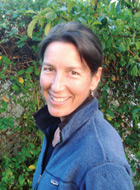
James Schnebly is a longtime dharma practitioner and an editor with the journal Inquiring Mind. Currently working as a psychotherapist, he is a graduate of Naropa’s graduate program in contemplative psychology. Jenny Bondurant and Kay Peterson were two of his teachers in that program.

